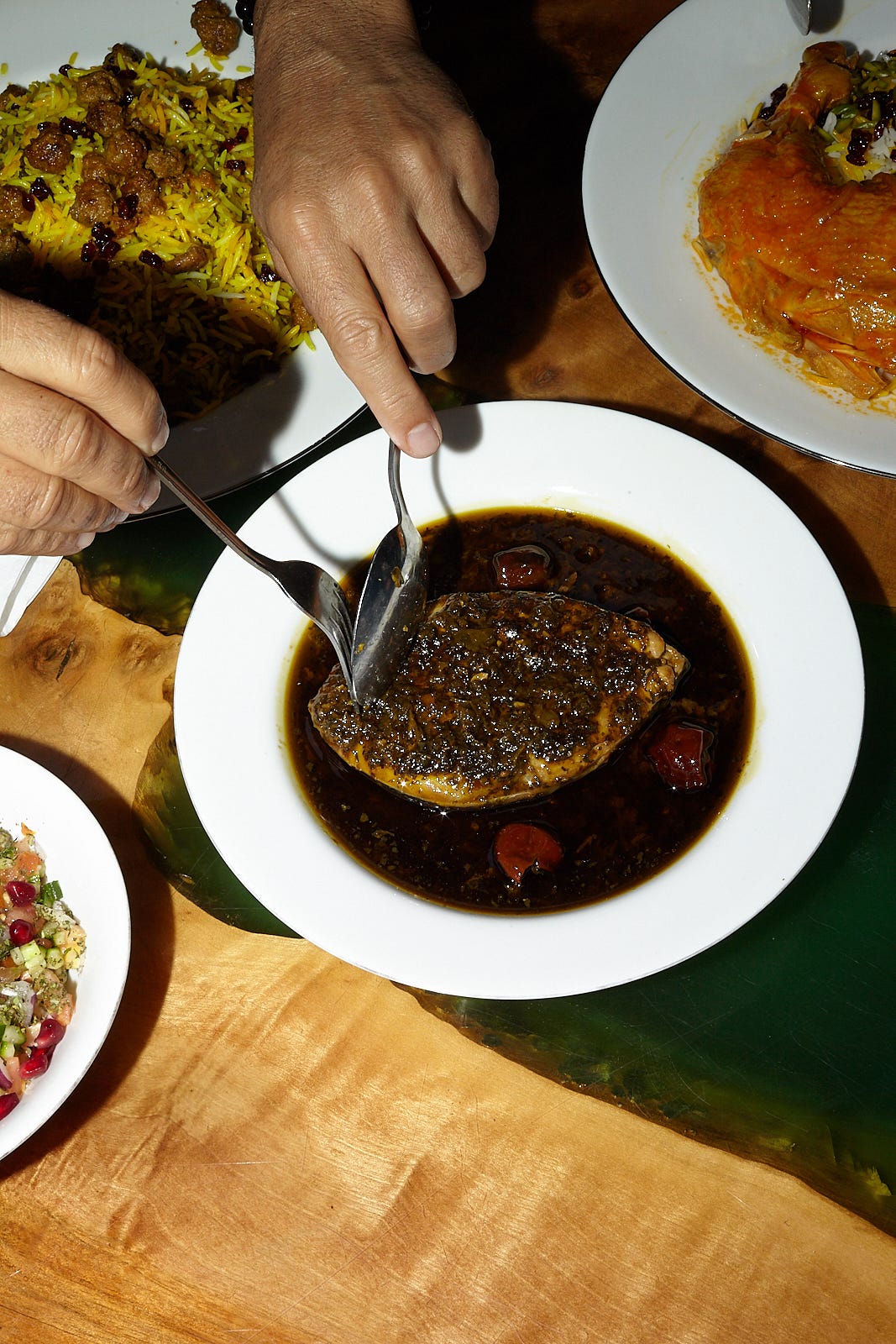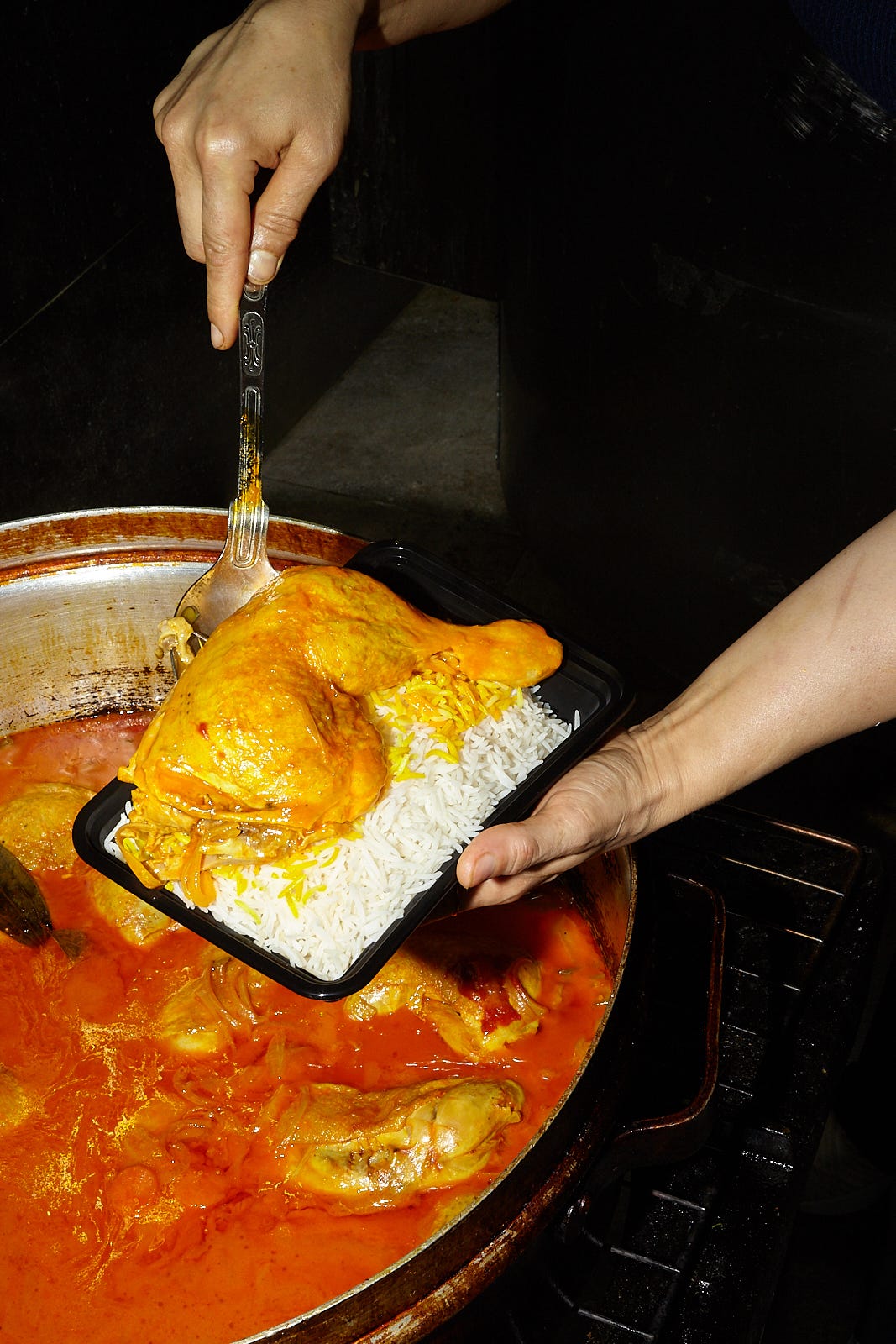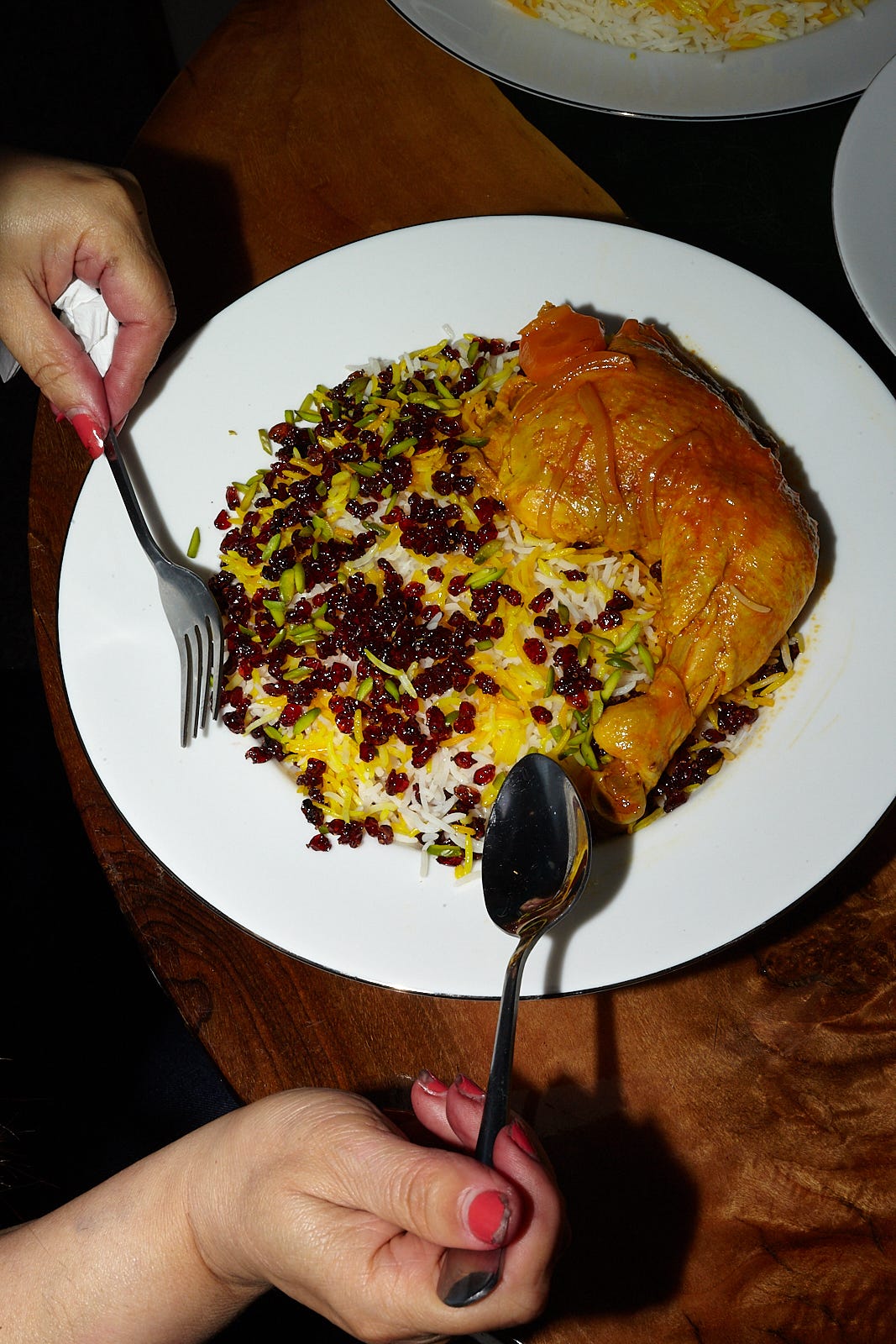Vittles Reviews: Once Upon a Time…in Finchley
How one Iranian restaurant’s exceptional stews are changing London’s food culture. Words by Jonathan Nunn. Photos by Michaël Protin
Good morning and welcome back to Vittles Restaurants.
Vittles Reviews is a column dedicated to critical reviews of London restaurants, written by Jonathan Nunn. You can read all the previous reviews here.
Once Upon a Time… in Finchley
How one Iranian restaurant’s exceptional stews are changing London’s food culture, by Jonathan Nunn
In the late 1980s, Turkish and Kurdish restaurateurs in London had a problem: how could they reconstruct a cuisine from scratch in a new place? They decided that the answer was grilled meat: lots of grilled meat. To survive, the first London ocakbaşıs necessarily compressed the entirety of a country’s culinary diversity into a list of lamb and chicken cuts. Meanwhile, as Kurdish writer Melek Erdal recalls in her London Feeds Itself essay ‘The Warehouse’, the sulu yemeks, the stews, stayed hidden behind the closed doors of homes and garment workshops, being cooked only for the community. Today, Turkish cuisine has partially undone the shackles it imposed on itself thirty years ago – you can now find stew specialists, soup specialists, breakfast spreads, tantuni, pide, even cull yaw kofte, running from Edmonton, through Green Lanes, down to Dalston. But Iranian cuisine, which arrived in London at a similar time, has stayed as it is: a “hegemonic grilled-lamb-or-chicken axis,” as Aryan Anbari wrote in January, a dependable repertoire of kebabs and the same three rogue stews (fesenjoon, ghormeh sabzi and zereshk polo) that often offer little more than lubrication.
This phenomenon is by no means unique to London. The Los Angeles Times critic Bill Addison has long lamented the lack of khoresh (stew) culture in LA’s Iranian restaurants, which are far more numerous than our own. The problem is that a good stew is not easily marketable. It is not charred and glossed with fat, it doesn’t involve live fire and the romance of the grill, and it does not necessitate going somewhere special to eat. It is complex, time-consuming cooking, made in the home and passed down matrilineally, where the maker must layer and balance huge and complex flavours – saffron, golden plum, pomegranate – with the technical elegance of a Grasse perfumier. When made indifferently, a stew will simply pass you by; when made with skill, there is nothing on earth you would rather be eating – the mixture of savoury, nutty flavours, aromatic musk and intensely sour fruit lighting up sectors of your tongue you never knew existed. So let me be very clear: that London – and not just London, but Finchley – has beaten Los Angeles to making this type of cooking publicly available is nothing less than a municipal coup.





